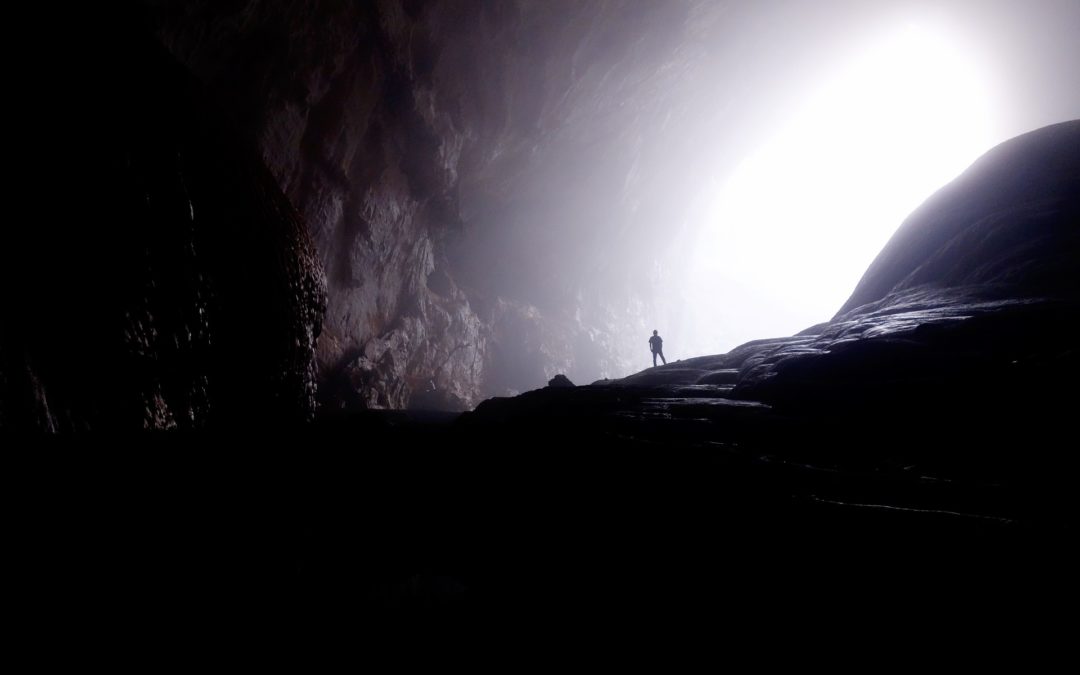I keep thinking about these boys in the cave in Thailand. As news of their rescue filters through each day, I ponder the time they spent in darkness, hopeless and afraid. These boys are the age of my sons. They love to play ball, ride their bikes and have adventures. And yet they’ve just endured harrowing conditions, dividing their lives into two categories: Before The Cave and After The Cave.
I was talking to a wise teacher recently and he offered me some advice about preparing to teach my next class. He suggested that I think about my students being in some sort of “God forbid” situation: prisoners of war, alone in the wilderness, or, yes, trapped in a cave. He reminded me of all the stories of people in the same situations who recited little tidbits they remembered from school or church: Scripture, Shakespeare, nursery rhymes, anything to help them keep their sanity and stability in what were nerve-wracking, hopeless situations.
“What are the things they should remember about your class in ten years? What is so important in your curriculum that they still need to be able to know and recite it in utter darkness?”
This question has me staring at my syllabus in a new light, really trying to hone in on the “why” behind our studies and what the truths and virtues are I want my students to carry with them long into their adult lives. Whether their soccer team gets stranded in a cave, literally, or if they have a dark life moment so cavernous that they despair, I want their hours spent with me to contribute to their survival, to buoy them and offer hope.
The same question could be asked about my own mind, and the mind of my own children. At some point in life, we all go into a cave and the waters rise threateningly high. What are the truths my mind will cling to when I’ve lost connection, lost my deposit, lost my true north? What little tidbits will filter through my own kids’ mental catalog when they stare down the darkness?
My teacher friend suggested I write a “catechism” of sorts for my students, rather than a syllabus. Show them that the stuff that’s really important, we’re going to repeat over and over, until we know it in our bones and in our knowers, and until we can carry it with us over hill, over dale, and into the caves.
This is tricky enough to accomplish for a nine-month long single subject course, but even more difficult to articulate and condense as a parent for the 18 years we spend shepherding our children.
Our list includes some Shakespeare, lots of Scripture, the gospel threads, truths about God, why we’re all here, and, if I’m honest, my kids will probably be able to recite a litany of “momisms” like “clean your room, check your pits before you leave the house, brush your teeth, and don’t put your shoes on the counter.”
Not exactly life-giving, but certainly practical.
They’ve also got quite the list of comedy sketches, movie quotes, and other bits of pop culture that filter to them through their parents and their friends. This puts the 18 years they spend under our roof absorbing words, stories, verses, music, art – some of it good, some bad, into a much deeper perspective. As I plan our school, as we think through our family worship, as we ponder the affections, hobbies, and culture our children are absorbing, I keep asking myself: How will this serve them in the cave?
Now, look, their whole lives won’t be spent in a cave, literally or figuratively. We’re preparing them for happy moments, too. But when the darkness sets in, I want them to be ready.
So I wonder, then, What is in the “In Case of Darkness” litany of your family? What will your kids carry with them to the caves?


Mine is the obvious…………The Lords Prayer
We read/recited that at my dad’s grave site last Sept when we buried his urn. My husband Herb gave a short eulogy and I handed out the written prayer to each person just in case anyone needed a reminder. My sister kidded me about it say ‘we all know that prayer’. I hate to tell you that my 19 year old great nephew had never heard it before; as we were walking to our cars he was telling my older sister that he had never heard that before…
You know, I should probably be sure my Littles have that one down! Definitely an important item for our Cave List! Thanks!
Every night we sing Proverbs 3:5-6 but I agree that more is needed. Psalm 1 and 23 got me through my “cave” last year. As did our catechism Q. What is your only hope in life and in death? A. That I am not my own but belong to God. Recently I heard one of my kids reciting Psalm 1 and I realized how much our literary and memorization benefits me too!